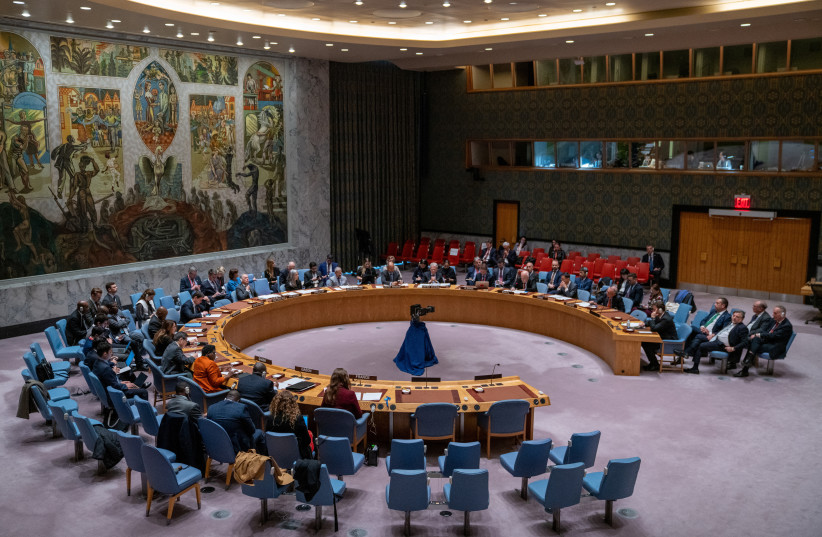Hillel the Elder, the first-century sage, offered three insights for living as cited in the ancient book of rabbinic wisdom, Pirkei Avot (Ethics of the Fathers). The first two come as a pair: “If I am not for myself, who shall be for me? But if I am only for myself, what am I?”
Hillel’s first two maxims are often understood as directives to the individual to take personal responsibility for their life, balanced with concern for others. These astute ideas apply beyond individual living to fit the State of Israel quite well.
If I am not for myself, who shall be for me?
Israel needs to do what is in Israel’s best interest. Israelis lived under regular rocket and terrorist attacks both before and after October 7. Hundreds of thousands of Israelis are now refugees in their own country, having fled the Gaza border from Hamas and the northern border from Hezbollah. It is the people of Israel who will continue living under these threats until they are contained.
The United Nations will not save Israel. The UN has an unhealthy obsession with Israel, at times denying the Jewish people’s connection to its ancestral homeland and endlessly blaming Israel for everything under the sun, as countries seek a scapegoat for their own failures and a distraction from their own oppressive regimes.
Israel must act in its own interest
The West will not save Israel. The West’s 15 minutes of empathy for Israel following the October 7 massacres fades further by the day.

It is being replaced with calls for the impossible, such as minimal civilian casualties in urban warfare against an enemy that has no regard for human life; and calls for the irrational, such as a ceasefire even absent the return of Israeli hostages. Further, the West’s demands of Israel are often tainted by these countries’ own agendas and domestic politics.
The United States, as Israel’s closest ally, has the right to a voice in this conversation, even as that voice has too often ventured into micromanagement and questionable advice. Israel should hear the US out – but ultimately choose to do whatever it deems is in its own best interest because the risks it faces are existential and because Israel will most directly have to live with the consequences of the war’s outcomes.
But if I am only for myself, what am I? While abundantly clear to Israelis, it is often lost on the rest of the world that Israel is not fighting only its own battles. Hamas’s attacks on Israel are part of a broader strategy masterminded and funded by Iran. Israel’s collapse is just one item on the Iranian agenda which seeks to bring the entire Middle East under its hegemony and spread its tentacles globally.
The US and Europe are too happy to drink a cocktail of naivete, delusion, and denial when it comes to Iran.
As the West twiddles its thumbs, Iran continues to sponsor global terrorism and inch towards nuclear arms with no incremental price to pay. Iran is the headache the West does not want to deal with.
China and Russia are aligned with Tehran, as Iranian belligerence dilutes American abilities to respond in Taiwan and Ukraine.
Israel alone is clearheaded in understanding that its actions address the Iranian menace not only to itself but to the entire free world.
In Hillel’s three insights for living, the third is: “If not now, when?” This encouragement to live with a sense of urgency is another directive to the individual that also applies to the State of Israel.
Had Israel been fighting the same war it is now fighting versus Hamas, but as a preemptive attack beginning October 6, no amount of military intelligence or strategic logic would win an iota of global support. With most of the country subject to mandatory military service and a culture that highly values protecting its civilians, it is doubtful that Israel would even have domestic support for such a war.
Without the horrific casus belli of the October 7 attacks, Israeli mothers and fathers wouldn’t agree to risk, and sometimes sacrifice, the lives of their sons and daughters, as well as their own lives.
The unrestrained evil Israel experienced in October both opens the door and highlights the need for Israel to respond as necessary to Hamas and possibly Hezbollah.
We are perhaps one US election away from Israel being severely isolated when it faces the next war with an intractable enemy. If Israel does not do what it needs to do now, there may not be a better time ahead.
By extending Hillel’s ancient maxims from the individual level to the modern State of Israel, we breathe new life into these 2,000-year-old words. Israel should act for itself, yet not only for itself, seizing the full opportunity now afforded by the uniquely tragic circumstance in which it finds itself.
The writer is the chief investment officer of Geshem Partners, an Israel-focused investment firm based in the US.
